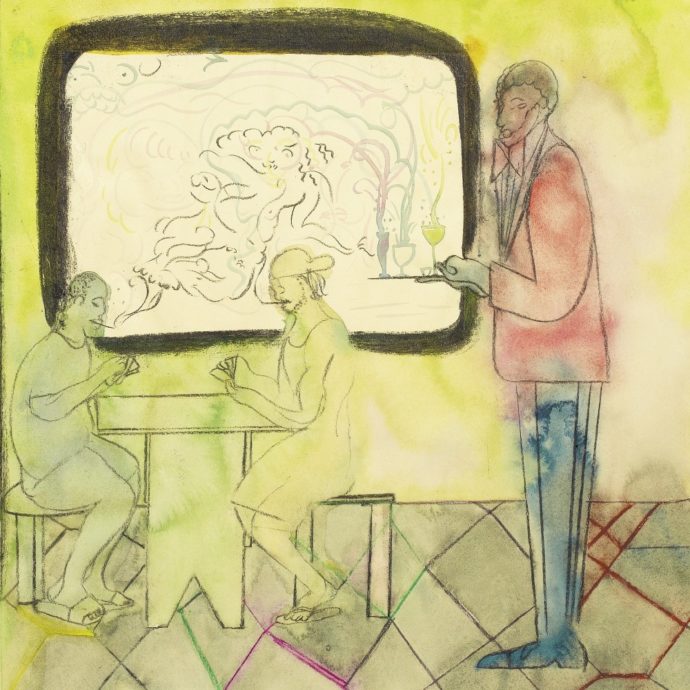By Eric Blendermann
If you’re lucky in this life, or maybe if you’re just faithful to the things you love, then apparently you can go from being a skater/comics enthusiast/science fiction geek to a world-class producer of futuristic funky beats, like Dobie (aka Tony Campbell), whose new album We Will Not Harm You has been released recently on Ninja Tune’s Big Dada label. Considering the length of Dobie’s career and the number of musical productions he’s been involved with, it’s remarkable that this is his first “proper” album as an individual artist to reach these shores.
The album opens with the question, “What is soul?” Apparently, Dobie’s answer to that question is, “Soul is a little bit of whatever you’ve got, all mixed together.” In the “Solid Steel” interview, he describes his sound as “gumbo, a stew,” and that’s a fair comparison: On the album opener, “The Beginning,” the flavors meld from DJ turntable stabs into booming bass into moody, arboreal keyboards and back around again, then yield to the synthesized urban busy-ness of the following track, “Blip 124.” Likewise, the propulsive “Stan Lee is a Hero of Mine” stirs snappy live drums in with ringing keyboard fills and warm organ tones, sprinkled with the laughter of children, for a free-jazz Eurostar anthem, which then collapses into the dreamy morning-after drone of “Then I Woke Up”.
Going in the opposite direction, “Somewhere Over There” is a moody meditation, calm but a little off-kilter, followed immediately by “Crunch Factor No. 5,” one of the album’s hardest tracks, big drums looped around buzzing minor chords, a certified banger but still not following a straight line. “On the Corner of Ridley Road” feels a bit like South African township jive with electronic tweaking, building into a steady groove, and then the cascading drums of “Snap, Crackle & Pop” blow it all away.
Since Dobie is a lifelong Londoner, it’s not surprising that the single best descriptor for his tracks on this album is “urban” – not just in the commonplace “hip-hop/street” sense, but in every way you might think of city life: busy, scattered, fractured, crowded, overlapping, stacked, hard, synthesized, mechanical, modern, dirty, often confusing, but from a higher perspective, organized and functional and productive. The many individual elements of each track on We Will Not Harm You might seem incongruous at first, but on repeated listens, and with maybe not so much attention to the fine details, an interesting, layered, and satisfying whole comes into focus.
In various descriptions of the album, We Will Not Harm You has been said to contain elements of house, techno, dubstep, 2-step, glitch, Afrobeat, jazz, and Latin music, and it’s all there. An enthusiastic music-head (like Dobie himself) will hear all these bits and pieces and more; every track on this album will remind you of something, and careful listening feels a bit like getting a guided tour through Dobie’s favorite records. Also, anyone who still has a fondness for the booming electronica of the Big Beat era of the 1990s, and especially for Lionrock (more electronic city soundtracks, courtesy of another scholarly, long-time producer, Justin Robertson), is going to find quite a lot to like on this album.
On We Will Not Harm You, Dobie masterfully shuffles all the kinds of “UK bass music” that he has been absorbing and creating for decades, and in 13 interesting and eclectic tracks he presents a brief history of beats in the UK, from hip-hop and house to glitch and gutter, and all points in between. He’s been there the whole time – who better?
Rating: 8.5/10

